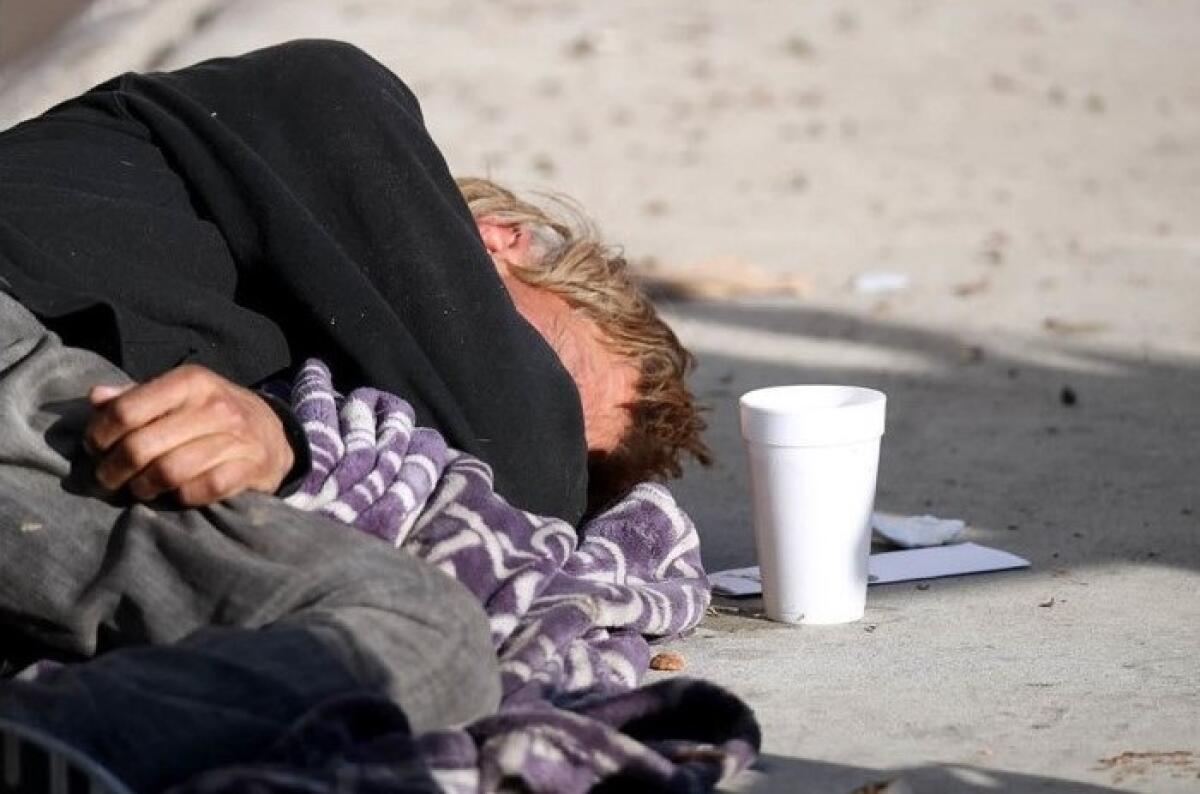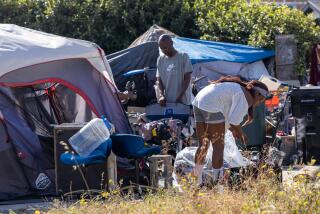Activists concerned over rise in Orange County homeless deaths

Advocates for the homeless are concerned about an increase in deaths since the COVID-19 pandemic took hold in Orange County.
According to data from the coroner’s office, 146 homeless people died between April and August. During the same period last year, there were 82 deaths among the homeless.
Although the coroner does not list a cause of death if it is due to natural causes, more than 90 of the causes for the homeless were left blank in reports. The Rev. Dennis Kriz, a vocal advocate for the homeless in Orange County, believes the rising deaths may be linked to the pandemic in an indirect way, including insufficient outreach efforts.
Kriz has been documenting the deaths of the homeless monthly for the Voice of OC.
“I think that the homeless, above all, are just afraid to go to the hospital,” Kriz said, pointing out the risks of visiting a hospital during the pandemic.
The pastor, who supported dozens of homeless people by allowing an encampment on the grounds of his church in Fullerton, works with the coalition Housing is a Human Right OC.
Months ago, Kriz and other advocates held car rallies to push the county to do more for the homeless during the pandemic.
The county has been seeking to help the homeless via Project Roomkey, a state initiative that provides temporary isolation shelter to homeless individuals who are exhibiting symptoms of COVID-19 and to those who are at high risk of developing a severe form of the illness. The initiative is providing 692 rooms at six hotel and motel sites.
The county is also providing about $1.3 million to service providers for alternative temporary shelter placement for the homeless.
“Any one death is one too many, and the Health Care Agency, in collaboration with our community partners, continues to work on solutions focused on linking individuals experiencing homelessness to the physical and behavioral health and housing resources they need,” Jason Austin, director of the Orange County agency’s office of care coordination, said in an email. “It is our job to help the most vulnerable among us both during COVID and after.”
Project Homekey, another state initiative, is the next phase in preventing the spread of the virus among the homeless population. With the help of $600 million in state grant funds, counties will purchase and rehabilitate hotels, motels, vacant apartments and other buildings.
Austin said the county has submitted three applications to the state for motel sites.
Kriz said Project Roomkey has been insufficient.
“The program never was dimensioned to the proper size,” Kriz said. “There never was an attempt to put everybody who’s on the street into a hotel room.”
Kriz believes Orange County needs to purchase more hotels to house the homeless. In the 2019 Point-in-Time count, there were almost 7,000 homeless people in the county.
“This is the time to do it; the hotels are cheaper than before,” Kriz said. “It would save lives... They spend the vast majority of their discretionary funds for law enforcement. So use some of that money to buy hotels.”
While Kriz believes that getting homeless people into hotels is likely the best route, he has complaints about Project Roomkey. Kriz and Dave Duran, another activist, both say it puts limits on the homeless, making them stay in the hotels to curtail the spread of the virus. Duran said the hotels and shelters are being run like “prisons.”
“Arguably, it is justified for the reasons of, you know, that they don’t want people to be wandering all over the place and then bringing COVID into the hotel,” Kriz said. “If you’re saying that people cannot freely leave, you’re basically asking people to join [Project] Roomkey. Then it becomes essentially voluntary incarceration.”
It isn’t clear what the answer is to protecting the homeless from COVID-19.
Kriz contended that the shelters are important but said they can pose an issue with spreading the disease. He said shelters require a minimum of three feet between beds, yet the consensus is that six feet are necessary to fend off the spread of the coronavirus.
“It’s three feet head-to-toe bed placement, which results in six feet face-to-face,” Austin said. “That is from the state.”
“The same standard for everything else is six feet,” Kriz said. “The only exemption, as far as I know, is for the homeless. That is something that is almost certainly not lost on them.”
Austin said the county is coordinating with homeless shelters to guide and recommend the best practices for preventing the spread of the coronavirus. He said this includes operational changes and reducing the number of occupants for the sake of social distancing.
Brazil writes for Times Community News.
More to Read
Sign up for Essential California
The most important California stories and recommendations in your inbox every morning.
You may occasionally receive promotional content from the Los Angeles Times.











